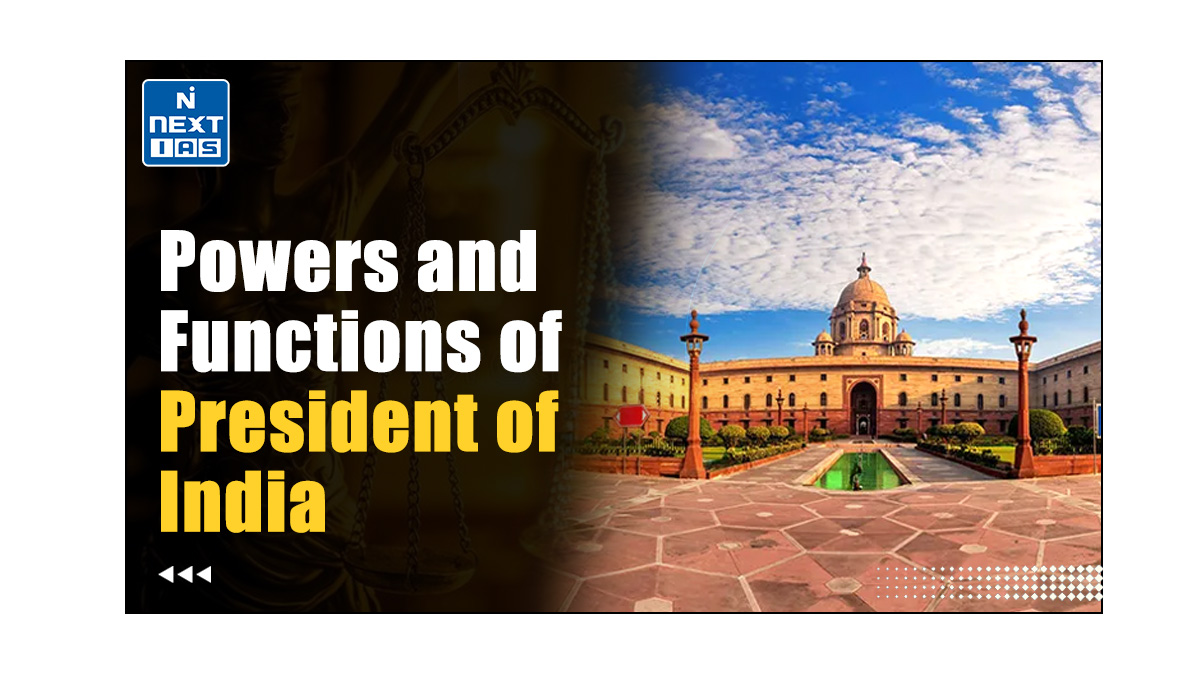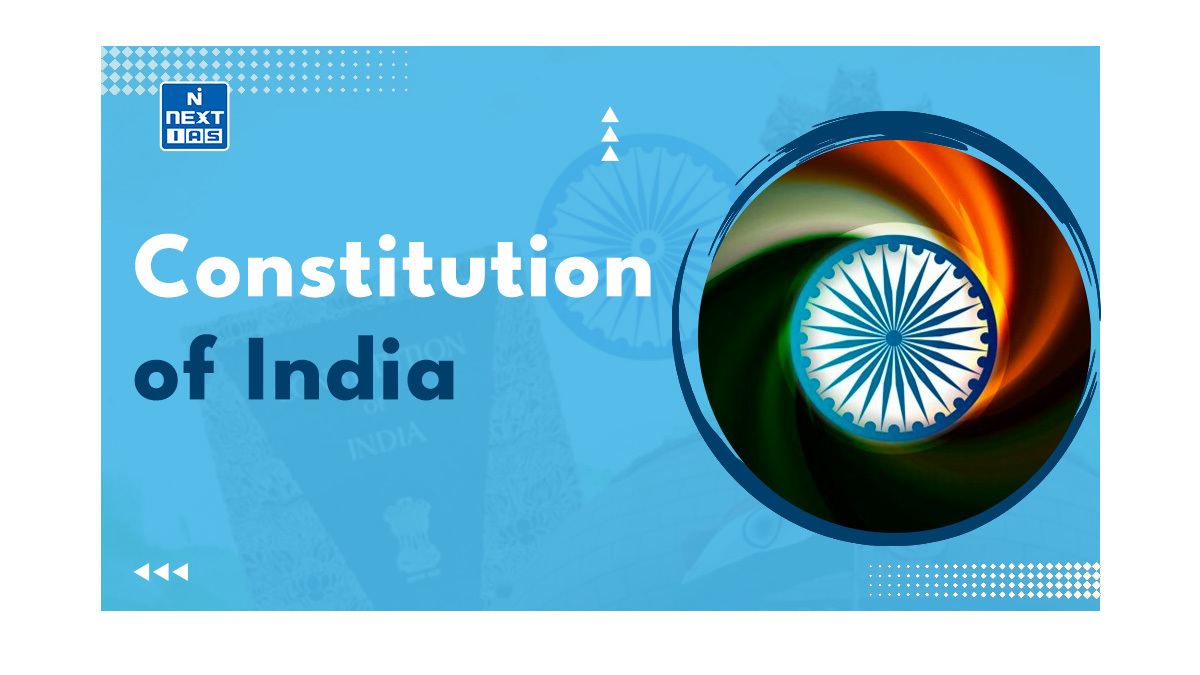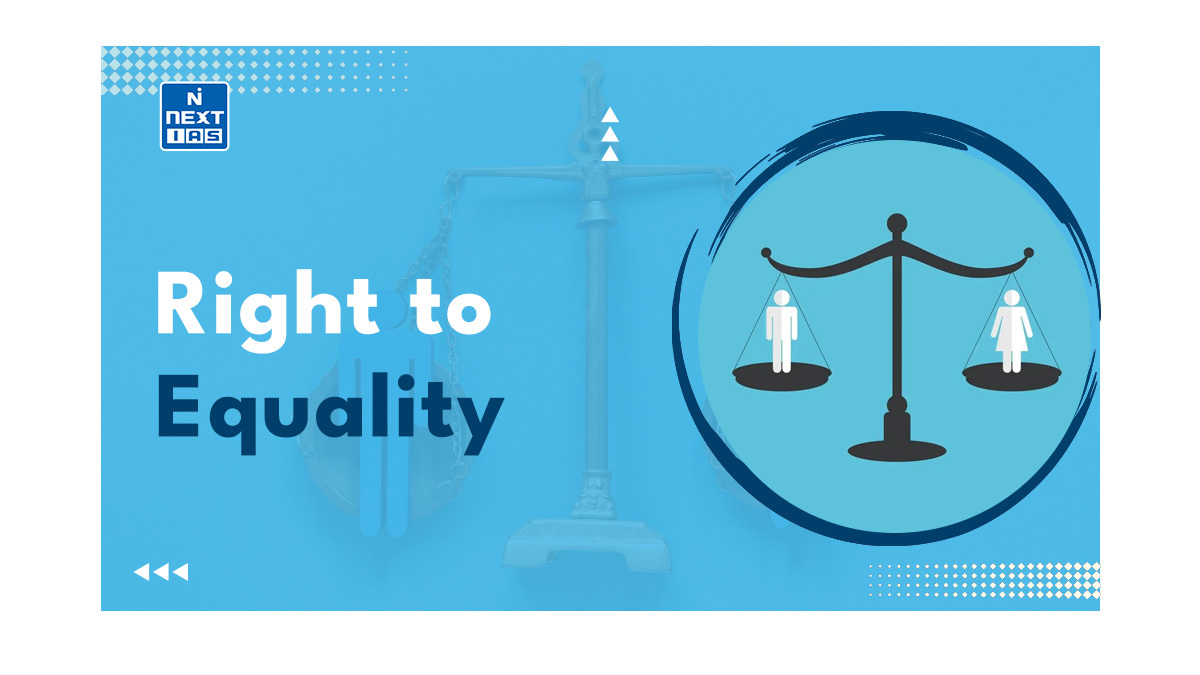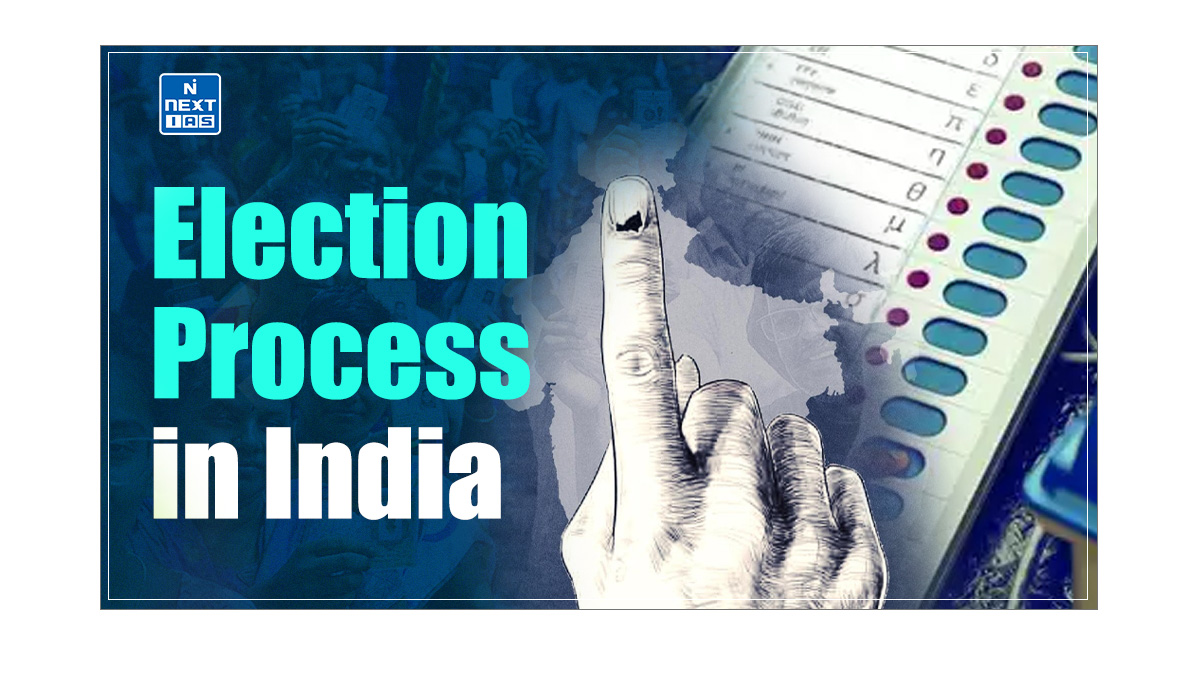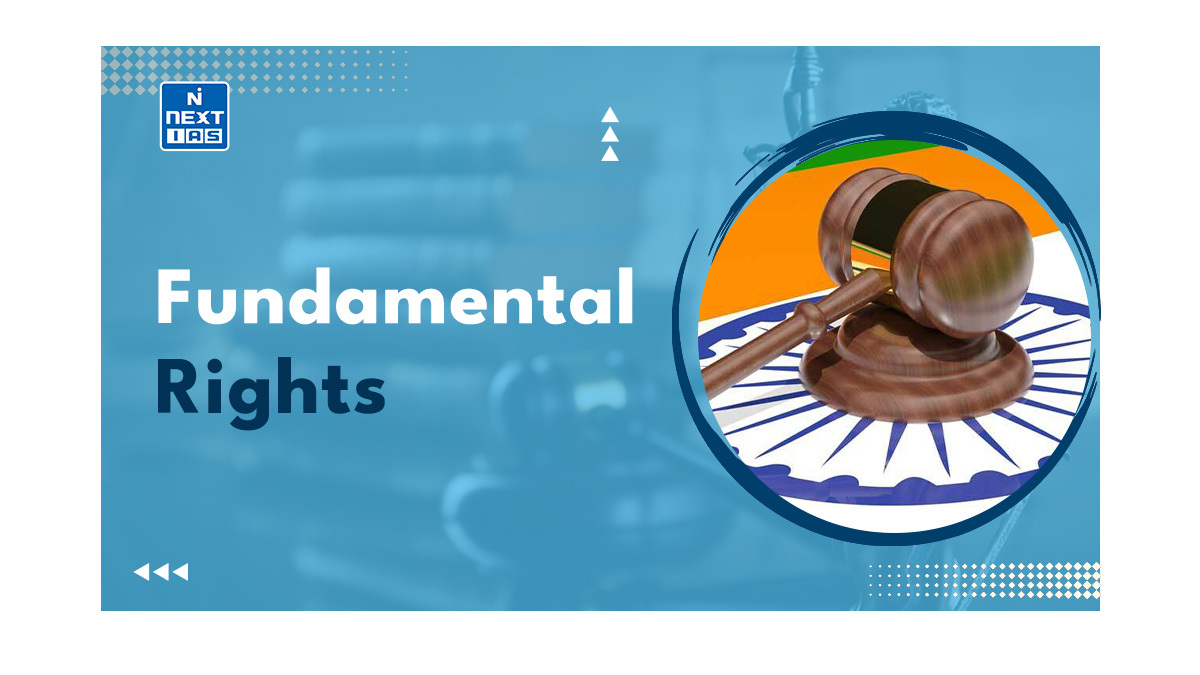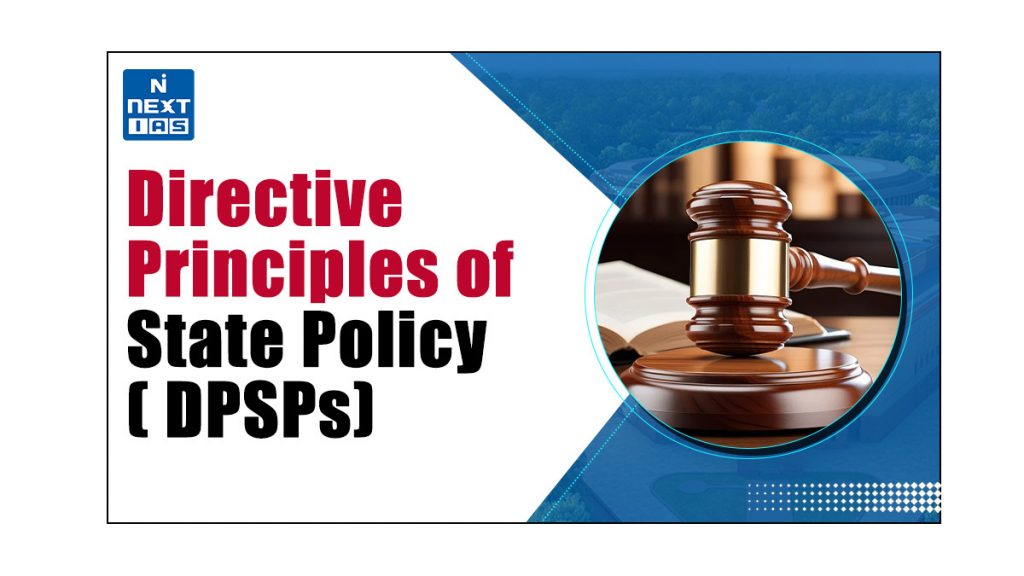
The Directive Principles of State Policy (DPSP) of Indian Constitution serve as a beacon for policymaking that guides the nation towards its envisioned goals of justice, equality, and prosperity. These principles outline the socio-economic objectives that the State is tasked with pursuing to ensure the well-being and dignity of its citizens. This article explores the meaning, constitutional provisions, features, classification, amendments, utility, criticism and more.
Meaning of Directive Principles of State Policy (DPSPs)
The Directive Principles of State Policy (DPSP) of Indian Constitution are guidelines and principles enshrined in the Indian Constitution that are aimed at directing the State in its governance and policy-making to ensure the welfare of the people and the establishment of a just society. DPSPs are considered fundamental to the governance of India and are integral to the constitutional framework of the country.
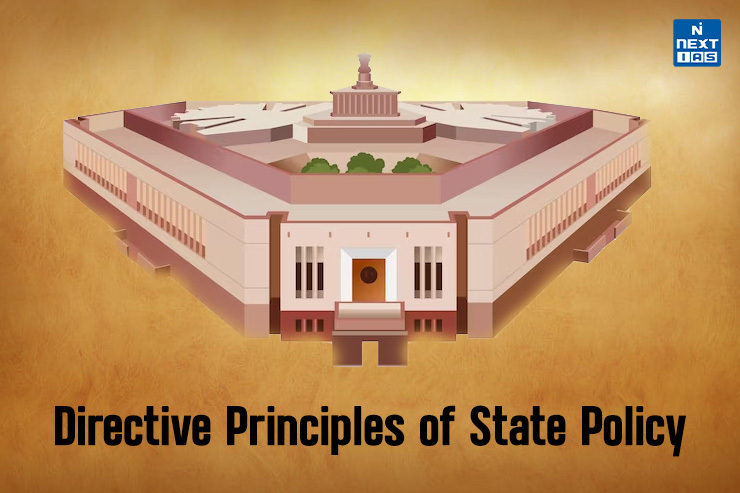
Constitutional Provisions of DPSPs
The Directive Principles of State Policy (DPSPs) are enshrined in Articles 36 to 51 in Part IV of the Constitution.
| Note: The framers of the Constitution borrowed the idea of DPSPs from the Irish Constitution. |
Features of Directive Principles of State Policy (DPSPs)
The Directive Principles of State Policy in the Indian Constitution encompass several key features which are as follows:
- Non-Justiciability- Unlike fundamental rights, which are legally enforceable, DPSPs are non-justiciable, meaning they cannot be enforced by courts. However, they are considered fundamental in governance and serve as moral and political directives for the state.
- Dynamic and Evolving- DPSPs are not static principles but evolve over time to address emerging socio-economic challenges and the changing needs of society. They allow for adaptation and innovation in governance strategies to meet evolving circumstances.
- Welfare State- The DPSPs are aimed at promoting the welfare of the people and the establishment of a just society. They emphasize principles of justice, equality, and fraternity in the governance of the country.
- Socio-Economic Objectives- DPSPs aim to establish certain social and economic goals that the State should strive to achieve. These objectives include promoting social justice, economic welfare, and the overall development of the nation.
- Balance between Rights and Duties- While fundamental rights focus on protecting individual liberties, DPSP emphasizes the importance of balancing rights with corresponding duties. They emphasize the collective welfare of society over individual interests.
- Integral to the Constitutional Scheme- DPSP are an integral part of the Indian Constitution. They reflect the socio-economic ideals and aspirations of the framers of the Constitution and are considered essential for the establishment of a just and equitable society.
- Good Governance- They encourage the promotion of good governance practices, including transparency, accountability, and the efficient functioning of public institutions.
- Cultural and Educational Values- These principles emphasize the promotion of cultural and educational institutions to preserve and enrich the country’s diverse cultural heritage and foster a spirit of scientific inquiry and innovation.
- International Obligations- DPSP may also guide the state in fulfilling its international obligations and commitments. They reflect principles of international law and conventions that India has ratified, reinforcing the country’s commitment to global standards of human rights and development.
| Note: 1. Dr B.R. Ambedkar described these principles as ‘Novel Features’ of the Indian Constitution. 2. Granville Austin has described the Directive Principles of State Policy and Fundamental Rights as the ‘Conscience of the Constitution’. |
Classification of Directive Principles of State Policy (DPSPs)
- The Constitution does not contain any classification of Directive Principles articles 36 to 51.
- However, Directive Principles articles 36 to 51 can be broadly classified into three categories based on their content and orientation-
- Socialistic Principles,
- Gandhian Principles, and
- Liberal-Intellectual Principles.
Socialistic Principles
These principles aim to establish a more equitable and just society by promoting social and economic welfare and reducing disparities among citizens. They direct the State:
| Articles | Description | Related Initiatives Taken |
|---|---|---|
| Article 38 | To promote the welfare of the people by securing a social order permeated by justice—social, economic, and political—and to minimize inequalities in income, status, facilities, and opportunities. | – Pradhan Mantri Awas Yojana – Public Distribution System |
| Article 39 | To secure – The right to adequate means of livelihood for all citizens, – The equitable distribution of material resources of the community for the common good, – Prevention of concentration of wealth and means of production, – Equal pay for equal work for men and women, – Preservation of the health and strength of workers and children against forcible abuse, Opportunities for the healthy development of children. | – Maternity Benefit Law – Integrated Child Development Scheme – Minimum Wages Act of 1948 – Ajeevika, Rural Livelihood Mission, Promotion of Self Help Groups (SHGs) |
| Article 39A | To promote equal justice and to provide free legal aid to the poor. | – National Legal Services Authority – Pro Bono Legal Service – Nyaya Mitra Scheme |
| Article 41 | To secure the right to work, to education, and to public assistance in cases of unemployment, old age, sickness, and disablement. | – National Social Assistance Program- Annapurna. – MGNREGA Act of 2005 – Persons with Disabilities Act of 1995 – Maintenance and Welfare of Parents and Senior Citizen Act 2007 |
| Article 42 | To make provision for just and humane conditions of work and maternity relief. | – PM Maitritva Vandana Yojana – Maternity Benefit Act of 2017 |
| Article 43 | To secure a living wage, a decent standard of living, and social and cultural opportunities for all workers. | – 4 Labour Codes – Code on Wages, Code on Social Security etc. – Social Security Act of 2008 |
| Article 43A | To take steps to secure the participation of workers in the management of industries. | – Trade Union Act of 1926 – Apprenticeship Act of 1961 |
| Article 47 | To raise the level of nutrition and the standard of living of people and to improve public health. | – Poshan Abhiyan – One Nation One Ration Card |
Gandhian Principles
These principles are aimed at promoting Gandhian values of social justice, decentralization, self-sufficiency, and moral governance. They direct the State:
| Articles | Subject-Matter | Related Actions and Schemes |
| Article 40 | To organize village panchayats and endow them with the necessary powers and authority to enable them to function as units of self-government. | – Successful PRI Models a. Sakala Initiative of Karnataka. b. Sangram Initiative of Maharashtra. c. Panch Parmeshwar of MP. |
| Article 43 | To promote cottage industries on an individual or cooperative basis in rural areas. | – Minimum Wages Act of 1948 – Payment of Wages Act 1936 – amended in 2017 to provide for payment of wages in cheque or direct transfer to bank accounts. |
| Article 43B | To promote voluntary formation, autonomous functioning, democratic control, and professional management of cooperative societies. | – Ministry of Cooperation to strengthen cooperative movement in India. – Yuva Sahakar-Cooperative Enterprise Support and Innovation Scheme 2019. |
| Article 46 | To promote the educational and economic interests of SCs, STs, and other weaker sections of society and to protect them from social injustice and exploitation. | – Complementary to Fundamental Rights under Article 15(3), 15(4), 15(5). – Scheduled Castes and Scheduled Tribes (Prevention of Atrocities) Act of 1989. |
| Article 47 | To prohibit the consumption of intoxicating drinks and drugs that are injurious to health. | – Ban on Liquor in Bihar. – Ban on gutka and e-cigarettes |
| Article 48 | To prohibit the slaughter of cows, calves, and other milch and draught cattle and to improve their breeds. | – Rashtriya Gokul Mission – Kamdhenu Yojana – Pashudhansanjivani |
Liberal–Intellectual Principles
The principles represent the ideology of liberalism. They direct the State:
| Articles | Subject-Matter | Related Actions and Schemes |
| Article 44 | To secure for all citizens a Uniform Civil Code throughout the country. | – Hindu Code Bill (1956) – Special Marriage Act (1956) |
| Article 45 | To provide early childhood care and education for all children until they complete the age of six years. | – Integrated Child Protection Scheme – Beti Bachao Beti Padhao Scheme |
| Article 48 | To organize agriculture and animal husbandry on modern and scientific lines. | – e- NAM – Soil Health Card – KUSUM Scheme |
| Article 48A | To protect and improve the environment and to safeguard forests and wildlife. | – Indian Forest Act of 1927. – Wildlife Protection Act of 1972. – Biological Diversity Act of 2002. |
| Article 49 | To protect monuments, places, and objects of artistic or historic interest which are declared to be of national importance. | – National Historic Preservation Act of 1966. – Antiquities and Art Treasure Act of 1972. |
| Article 50 | To separate the judiciary from the executive in the public services of the State. | – Doctrine of Separation of Powers as part of Basic Structutre of the Constitution (Kesavananda Bharati vs. State of Kerala Case, !973.) |
| Article 51 | – To promote international peace and security and maintain just and honourable relations between nations. – To foster respect for international law and treaty obligations and – To encourage the settlement of international disputes by arbitration. | – Non-Aligned Movement – Panchsheel Doctrine – UN Peacekeeping Operations. |
Amendments in DPSP
Several additional Directive Principles have been incorporated into the original list through various amendments. These new principles are listed below:
The 42nd Amendment Act of 1976
| Articles | Subject Matter |
|---|---|
| Article 39 | To secure opportunities for the healthy development of children. |
| Article 39A | To promote equal justice and to provide free legal aid to the poor. |
| Article 43A | To take steps to secure the participation of workers in the management of industries. |
| Article 48A | To protect and improve the environment and to safeguard forests and wildlife. |
The 44th Amendment Act of 1978
| Article | Subject-Matter |
|---|---|
| Article 38 | To minimize inequalities in income, status, facilities, and opportunities. |
The 86th Amendment Act of 2002
| Article | Subject-Matter |
| Article 45 | – This Amendment Act has changed the subject matter of Article 45 and made elementary education a Fundamental Right under Article 21A. – The amended directive requires the State to provide early childhood care and education for all children until they complete the age of six years. |
The 97th Amendment Act of 2011
| Article | Subject-Matter |
|---|---|
| Article 43B | It requires the state to promote voluntary formation, autonomous functioning, democratic control, and professional management of cooperative societies. |
Why Directive Principles are Non-Justiciable in nature?
The framers of the Constitution made the nature of Directive Principles of the State Policy non-justiciable and legally non-enforceable because of the following reasons:
- Insufficient Financial Resources- The nation lacked adequate financial resources to fully implement these principles at the time of the drafting of the Constitution.
- Diversity and Backwardness- The presence of immense diversity and socio-economic backwardness across the country posed significant challenges to their effective implementation.
- Burdensome Responsibilities of the Newly Independent State- The newly established independent Indian State had numerous pressing priorities, and enforcing these principles could potentially overwhelm its capacities.
Utility of Directive Principles
Although Directive Principles do not grant legal rights or establish legal remedies, they hold significance and utility in the following ways-
- Instrument of Instructions- They function as “Instrument of Instructions” or general recommendations addressed to all authorities within the Indian Union.
- They serve as reminders of the fundamental principles underlying the envisioned social and economic order set forth by the Constitution.
- Judicial Review- They have served as guiding lights to the courts, aiding them in exercising their power of judicial review, specifically in assessing the constitutional validity of a law.
- Framework for State Actions- They constitute the overarching framework guiding all actions (legislative and executive) undertaken by the State and also a guide to the courts in certain aspects.
- Alignment with Preamble- They elaborate on the aspirations outlined in the Preamble, which solemnly resolves to secure justice, liberty, equality, and fraternity for all citizens of India.
- Stability and Consistency in Policies- It facilitates stability and consistency in both domestic and foreign policies across political, economic, and social spheres.
- Supplementary to Fundamental Rights- They are supplementary to the fundamental rights of citizens and it has filled the vacuum in Part III by providing for social and economic rights.
- Enhanced Democratic Environment- These principles create a conducive environment for citizens to fully enjoy their fundamental rights, recognizing that political democracy is truly meaningful when complemented by economic democracy.
- Empowerment of Opposition- These principles empower the opposition to scrutinize and influence the government policies if they are opposed to the Directives.
- Citizen Evaluation of Government Policies- These principles allow citizens to evaluate the performance and programs of the government.
Conflicts Between Fundamental Rights and DPSP: Associated Cases
- Champakam Dorairajan vs. the State of Madras (1951)- In this case, the Supreme Court ruled that in the event of any conflict between the Fundamental Rights and the Directive Principles, the Fundamental Rights would prevail.
- It declared that the Directive Principles act as a subsidiary of the Fundamental Rights.
- It also held that Fundamental Rights could be amended by the Parliament only by enacting Constitutional Amendment Acts.
- Golaknath vs. the State of Punjab (1967)- In this case, the Supreme held that Fundamental Rights could not be amended by the Parliament even for the implementation of Directive Principles of State Policy.
- However, it was contradictory to its own judgment in the ‘Shankari Parsad case’.
- Kesavananda Bharati vs. the State of Kerala (1973)- In this case, the Supreme Court overruled its Golak Nath verdict (1967).
- It declared that Parliament can amend any part of the Constitution but cannot alter the “Basic Structure Doctrine” of the Constitution.
- After this judgment, the Right to Property (Article 31) was deleted from the list of Fundamental Rights.
- Minerva Mills vs. the Union of India (1980)- In this case, the Supreme Court reaffirmed that Parliament can amend any part of the Constitution but cannot change the “Basic Structure” of the Constitution.
Therefore, the present position is that the Fundamental Rights enjoy supremacy over the Directive Principles. Yet, this does not mean that the Directive Principles cannot be implemented. The Parliament can amend the Fundamental Rights to implement the Directive Principles, so long as the amendment does not damage or destroy the ‘Basic Structure’ of the Constitution.
Directives Outside Part IV
In addition to the Directives outlined in Part IV, several other Directive Principles are contained in the other parts of the Constitution. They are:
| Article | Subject-Matter |
| Article 335 in Part XVI – Claims of SCs and STs to Services | It ensures that the claims of Scheduled Castes and Scheduled Tribes in appointments to Union or State services must be considered to maintain efficiency of administration. |
| Article 350-A in Part XVII – Instruction in the Mother Tongue | It encourages every state and all local authorities to provide primary education in the mother tongue to children belonging to linguistic minority groups. |
| Article 351 in Part XVII – Development of the Hindi Language | It mandates the Union to promote and develop the spread of the Hindi language and serves as a medium of expression for all the elements of the composite culture of India. |
The above Directives are also non-justiciable in nature. However, they are given equal importance and attention by the judiciary because all parts of the Constitution must be read together.
Implementation of DPSP: Related Acts
- Land Reforms- All the states have enacted land reform laws to transform agrarian societies and enhance the living conditions of rural populations. These measures include-
- Abolition of intermediaries such as zamindars, jagirdars, inamdars, etc.
- Implementation of tenancy reforms such as security of tenure, fair rents, etc.
- Imposition of landholding ceilings, etc.
- Labor Reforms- The following legislation has been enacted to safeguard the rights and welfare of the labour force-
- The Minimum Wages Act (1948), now integrated into the Code on Wages (2020),
- The Contract Labour Regulation and Abolition Act (1970),
- The Bonded Labour System Abolition Act (1976), etc.
- Panchayati Raj System- The government has fulfilled the constitutional obligation stated in Article 40 (to organize village panchayats) through the 73rd Constitutional Amendment Act of 1992.
- Cottage Industries- The government has established several Boards such as the Khadi and Village Industries Board, Khadi and Village Industries Commission, etc., to promote cottage industries as per Article 43.
- Education- The government passed the Rights to Education Act 2009 and implemented provisions related to free and compulsory education as provided in Article 45 through the 86th Constitutional Amendment of 2002.
- Rural Area Development- The government has launched various programs such as the Integrated Rural Development Programme (1978), Samagra Shiksha Abhiyan (2018), and the Mahatma Gandhi National Rural Employment Guarantee Act (2006) to raise the standard of living in rural areas.
- Environment Reforms-TheWildlife (Protection) Act of 1972 and the Forest (Conservation) Act of 1980 were enacted to ensure the preservation of wildlife and forests.
- Additionally, the Water and Air Pollution Control Acts have facilitated the establishment of the Central Pollution Control Board.
- Heritage Preservation: The Ancient and Historical Monument and Archaeological Sites and Remains Act (1958) has been enacted to protect monuments, places, and objects of national importance giving effect to Article 49 of the Indian Constitution.
Significance of Directive Principles of State Policy (DPSPs)
- The Directive Principles of State Policy (DPSPs) in Indian Constitution are fundamental guidelines for the government to promote social welfare, economic justice, and equity, aiming to create a just society.
- While not legally enforceable, they play a crucial role in shaping laws and policies that align with ideals like social and economic democracy, promoting fair wages, environmental protection, and accessible education.
- The DPSPs bridge the gap between individual rights and social obligations, providing a vision for governance that prioritizes the welfare of all citizens and works towards reducing inequality across various sections of society.
Criticism of Directive Principles of State Policy
- Non-Justiciability- DPSPs are non-justiciable in character as they lack enforceability, leading to their ineffectiveness in ensuring social and economic justice.
- Illogically Arranged- DPSPs are neither properly classified nor logically arranged, as these principles have mixed up unimportant issues with the most vital economic and social questions
- Conservative- The DPSPs do not embrace socialism entirely. Critics argue that the Directives were deemed suitable for India in the mid-20th century but questioned their relevance for the 21st century, suggesting they may become outdated over time.
- Constitutional Conflict-
- Conflict with Fundamental Rights- Some DPSPs often conflict with Fundamental Rights, leading to ambiguity and facing challenges in balancing competing interests.
- Lack of Clarity- The vague and ambiguous language used in DPSPs can lead to interpretation issues, making them difficult to implement effectively.
- Political Expediency- There is criticism that governments often prioritize short-term political gains over the long-term objectives outlined in DPSPs, undermining their significance.
- Inadequate Implementation- Many argue that successive governments have failed to adequately implement DPSPs, leading to persistent socio-economic inequalities and underdevelopment.
- Lack of Accountability- Due to their non-binding nature, critics argue that there is a lack of accountability in ensuring compliance with DPSPs, allowing governments to neglect their obligations.
- Ignoring Social Realities- Some argue that DPSPs fail to address the complexities of India’s diverse socio-economic realities, resulting in policies that may not effectively address the needs of all citizens.
Distinction Between Fundamental Rights and Directive Principles
| Fundamental Rights | Directive Principles |
| 1. These are negative as they prohibit the State from doing certain things. | 1. These are positive as they require the State to do certain things. |
| 2. These are justiciable in nature. | 2. These are non – justiciable in nature. |
| 3. They aim to establish political democracy in the country. | 3. They aim to establish social and economic democracy in the country. |
| 4. These have legal sanctions. | 4. These have moral and political sanctions. |
| 5. They promote the welfare of the individual. Hence they are personal and individualistic. | 5. They promote the welfare of the community. Hence, they are societarian and socialistic. |
| 6. They are automatically enforced means they do not require any legislation for their implementation. | 6. They are not automatically enforced means they require legislation for their implementation. |
| 7. The courts can declare a law unconstitutional and invalid if it violates any of the Fundamental Rights. | 7. The courts cannot declare a law unconstitutional and invalid if it violates any of the Directive Principles. However, they can uphold the validity of a law on the ground that it was enacted to give effect to a directive. |
The Directive Principles of State Policy (DPSPs) encapsulate the moral and political aspirations of the Indian Constitution, providing a framework for governance that emphasizes social justice, economic equity, and the overall welfare of citizens. While non-justiciable, these principles serve as guiding lights for policymakers, shaping legislative and executive actions aimed at fostering inclusive development and upholding the dignity of every individual. Despite criticisms and challenges, DPSPs remain integral to India’s democratic ethos and they remain relevant in their capacity to adapt and evolve, ensuring that the constitutional ideals of justice, liberty, equality, and fraternity continue to guide the nation towards a brighter future.
Frequently Asked Questions (FAQs)
How many Directive Principles of State Policy are there?
There are currently 15 Directive Principles of State Policy in the Indian Constitution, outlined in Articles 36 to 51.
DPSPs were taken from which country?
The concept of Directive Principles of State Policy was borrowed from the Irish Constitution.
